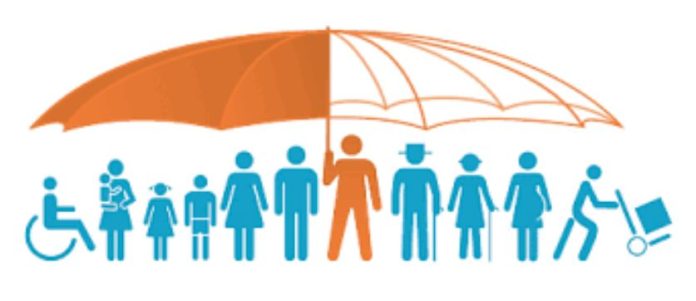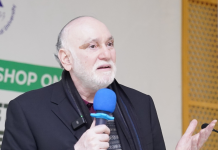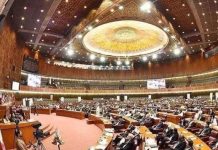PESHAWAR, JAN 05 (DNA) — In recent years, Pakistan has been grappling with mounting challenges on economic fronts resulting into an increase in poverty and unemployment in the country. The country’s most vulnerable segments including laborers, farmers, elderly, women, children, and people with disabilities have borne the brunt of socioeconomic imbalances and societal vulnerabilities due to huge debt burdens.
To mitigate these great hardships, the government and civil society organizations have increasingly turned to social safety nets for socioeconomic emancipation of the downtrodden. These social safety nets are designed to provide a buffer against economic shocks, promote social inclusion, and ensure a more equitable distribution of financial resources in Pakistan.
Like other socioeconomic sectors, social safety nets in Pakistan have evolved significantly over the last few decades. Initially, these were limited to emergency aid and small-scale welfare programs. However, in recent years, the government has expanded its social protection landscape, focusing on multi-dimensional poverty alleviation and resilience building for vulnerable groups.
One of the most notable programs is the Benazir Income Support Program (BISP), launched in 2008 has grown into the country’s flagship cash transfer initiative of the modern era. “The basic aim of BISP is to provide direct financial support to the poorest households, particularly female-headed families under a transparent mechanism.
BISP has made significant strides in reducing poverty by offering quarterly stipends which provided the much needed relief to underprivileged households,” said Ms Javaria, BISP KP spokeswoman while talking to media.
She said the Federal Government has started major initiatives for socioeconomic empowerment of poor households and has recently signed an agreement with the Bill & Melinda Gates Foundation and Karandaaz Pakistan to further simplify and enhance the efficiency besides transparency of its funds transfer mechanism.
Under the agreement, she said Karandaaz Pakistan will facilitate easy and transparent payment of funds to about 9.3 million beneficiaries in targeted districts of the country through the RAAST payment system. She said Karandaaz would also support a nationwide digital and financial literacy training program, with its trial phase would formally launch on June 30, 2025.
She said that BISP’s life cycle approach was focusing on initiatives such as Benazir Kafalat, Taleemi Wazaif, and Nashonuma programs, which play crucial roles in social security and preventing stunting in children and lactating mothers. She said BISP Hunarmand program was being mulled to provide skill development opportunities to deserving women and their families, adding this program seeks to enhance the economic opportunities to eligible families while creating space for new beneficiaries.
He said that efforts were underway to extend BISP support to 10 million people by next year. “BISP is a great blessing for millions of poor families like me,” said beneficiary Jasehat Bibi, a housewife of Pabbi Nowshera. She suggested disbursement of cash through bank accounts to save time for beneficiaries.
Syed Qasim Ali Shah, Minister for Social Welfare said KP government plans to include life insurance scheme in Sehat Card Program and is all set to start eight social safety and empowerment programs including life insurance for all besides setting up of Provincial Islamic Takaful Insurance Company.
He said the KP government was set to introduce universal health coverage for its entire population and to provide life insurance compensation of Rs500,000 to Rs1,000,000 for the head of a family.
Adaptive Social Protection (APS) project has been approved to transform the social protection system in the province, he said, adding APS would be implemented with the technical assistance of GIZ, aims to strengthen the social protection system with a focus on improving linkages among relevant sectors as well as institutionalizing the use of social protection in disaster management.
He said under the project, an Integrated Social Protection Information System (Data Centre) would be established; thereby ensuring the all-time availability of complete and accurate information about the initiatives program and activities carried out in the field of social welfare sectors.
Similarly, a record Rs30. 3 billion has been disbursed under the Sehat Card programme from March 2024 to December 24, 2024 in KP. “Despite the evident success of social safety net programs at national and provincial level, there are significant challenges to their full effectiveness,” said Professor Dr Muhammad Naeem Khattak, former chairman, department of Economic, Peshawar University.
For Pakistan’s social safety nets to be more effective in the long term, the experts emphasized the need for sustainable financing models and better targeting of vulnerable populations. The KP government must also invest in education and infrastructure that facilitates access to services, particularly in rural areas. Digital inclusion, for instance, could ensure that financial aid reaches those in remote locations without the need for cumbersome paperwork or long travel times.
However, for these programs to reach their full potential, it will require an integrated approach that addresses both immediate needs and structural drivers of poverty. With sustained commitment, improved governance, and a focus on long-term empowerment, Pakistan can create a more secure and equitable society for all. —DNA

















